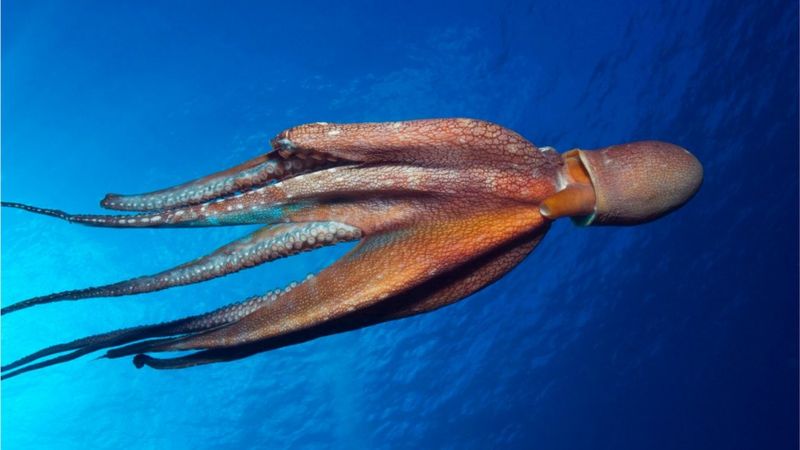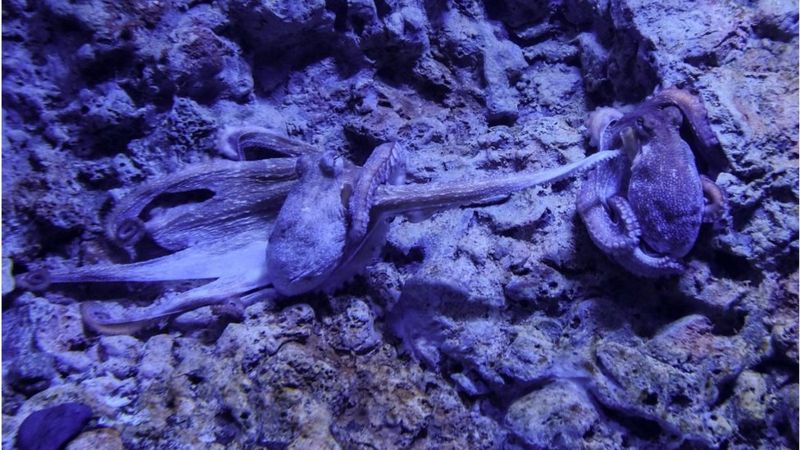With its brain cells encircling its entire body, the octopus is an awkward, inquisitive creature with the ability to amaze you.
The voice book of philosopher and diver Peter Godfrey-Smith called 'Other Minds': highlights the life of an octopus in its ability to think and the amazing transformation of the creature.
These are just a few of the many, many amazing things we learned about this inanimate creature.
1. They are very intelligent creatures and their brains are in their hands
Octopuses have a large nervous system with an average of about 500 million cells or brain cells.
A condition that causes him to have a brain that resembles a small mammal like a dog.
It is not like a dog, a human being, or others, its nerves are in the hands and not in the brain, first, it is as if they are about twice the size of its population.
In each octopus hand, you can have 10,000 nerves that you can hold or taste.
2. The octopus can be trained and can remember
Research over the past seven years shows that an octopus can teach you to do small things.
In one experiment, several octopuses were able to push a fish for a prize.
Octopuses have been able to make several experiments to look and remember, by closing one eye and dropping the other.
It is a long process, but the octopus succeeded in making it different from most other animals.
3. They are very naughty creatures
In an earlier attempt to lift the load, three octopuses participated and were given the names of Albert, Bertram, and Charles. Albert and Bertram were the ones who followed the instructions well when Charles just wanted to disrupt the load.
As if that were not enough, Charles was pouring water on any exercise he was given to do that day.
Violent octopuses were reported several times in the water, including those who learned to turn on and off lights and to transmit electricity by plane.
At the University of Otago in New Zealand, their chaos was costly, so they had to return the octopus to the water.
4. Octopuses can recognize a person
In the same New Zealand laboratory that was experimenting with lighting and failure, octopuses were able to identify local staff by showing love for some and others for no apparent reason.
The person who hates him as he passes must pour water on his back and neck.
5. Octopuses love to play
Octopuses are playful creatures.
Some of the octopuses in the laboratory were seen spending a lot of time throwing cans of pills, screaming in the water, and jumping in the water.
6. Octopuses breed on the hands
In many creatures, such as the octopus, you cannot tell if it is a female or a male if they are crouching in their arms.
If it is a male octopus, it stretches its hand out to the female and if the female octopus agrees then the sperm will pass under the arm.
The female usually fertilizes her sperm for some time before fertilizing her eggs.
7. They have their own way of greeting
When the octopus is walking they are sometimes seen "taking their mates out of hiding using their hands.
However, Professor Stefan Linquist, who has studied octopus behavior, believes that they often shake hands with one another and that this behavior helps the octopus to recognize each other.
8. Octopuses have many hearts
Octopuses have three hearts!
Their hearts pump blood which is green and blue
They use copper as their oxygen instead of iron which makes us red blood cells.
9. They can be very scary
Octopus can change color and structure.
When an angry male seeks to attack another octopus, he will often turn black, rise from the sea, and stretch his arms in a way that enhances his figure.
Sometimes he will lift his robe, the whole back part of his body, over his head - this is called the name "Nosferatu" and have a horrible appearance.
10. And he has the advantage of not having bones
The octopus can cling to a hole near the shape of its eyeball and change its body shape.
Lack of bones or shells is not uncommon for an animal with the shape and ability of an octopus.
This trait makes them more vulnerable to predators, but also allows them to hide.




